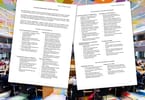BUENOS AIRES, Argentina – Argentina’s nationalization of a struggling, Spanish-owned airline brings costly responsibilities that could drain public resources and force fare hikes unless oil prices fall, analysts said Friday.
Argentina’s Senate this week voted to “proceed in the rescue” of Aerolineas Argentinas and its subsidiary Austral — returning the carrier to state hands in a bid to stabilize the country’s troubled airline industry. Argentina’s lower house approved the bill in August.
Officials haven’t yet revealed what Argentina will pay Madrid-based Grupo Marsans for its estimated 94 percent stake in the airline, but the government will likely be hardest hit when it assumes what it claims to be the airline’s US$900 million in debts.
A Buenos Aires-based spokesman hired to represent Marsans declined to comment on the takeover, but the privately held company has denied having those debts in the past.
Analysts meanwhile doubt that the government can make Aerolineas profitable, and with oil prices topping US$100 per barrel, the takeover means the government will now not only subsidize, but foot the bill, for its increased operating costs.
That makes a fare increase likely, which would limit air travel and further slow growth, said Ramiro Castineira, an economist at the Buenos Aires-based research group Econometrica. It also places an extra burden on public coffers, already strained by US$10 billion a year in subsidies, about a third of which are energy-related.
Aerolineas Argentinas, the country’s largest domestic carrier with flights to 34 local airports, has been struggling since 2001, plagued by labor strikes over late wages and by protests over routinely oversold flights, said Sebastian Juncal, an researcher at the Buenos Aires-based Center for Studies of the State and Society.
But Argentine officials say they need the airline — the only one that serves remote parts of the 2.8 million square kilometer (1.1 million square mile) country, which is about a quarter the size of the United States.
Still, analysts warn that the government could soon face cash shortages, as export and other tax revenue falls narrowing its budget surplus.
Argentina “needs to be finding ways to reduce expenditures, to reduce inflation and increase the size of their surplus,” said Daniel Kerner, an analyst with the Eurasia Group in New York. Aerolineas, he added, “is one additional layer of expenditures.”
Off the bat, the government will have to homogenize the airline’s motley fleet, to save money by ensuring crews can easily swap between aircraft, said Roger Williams, managing partner at the Miami-based consultancy Airline Information.
It will also need the airline’s 9,000 employees and six different labor unions on board for the takeover, making it easier to negotiate nagging salary and management policy issues, Williams added.
Argentina’s National Valuation Court, an autonomous state body that assesses the value of private assets, will ultimately set the airline’s price, although it’s not yet clear when. The purchase must then be approved by the congress.
Marsans could reject Argentina’s offer and seek international arbitration — a move that could deter leasing companies from contracting with Aerolineas to provide the planes and equipment it needs, Williams said.
WHAT TO TAKE AWAY FROM THIS ARTICLE:
- Officials haven’t yet revealed what Argentina will pay Madrid-based Grupo Marsans for its estimated 94 percent stake in the airline, but the government will likely be hardest hit when it assumes what it claims to be the airline’s US$900 million in debts.
- Aerolineas Argentinas, the country’s largest domestic carrier with flights to 34 local airports, has been struggling since 2001, plagued by labor strikes over late wages and by protests over routinely oversold flights, said Sebastian Juncal, an researcher at the Buenos Aires-based Center for Studies of the State and Society.
- A Buenos Aires-based spokesman hired to represent Marsans declined to comment on the takeover, but the privately held company has denied having those debts in the past.






















